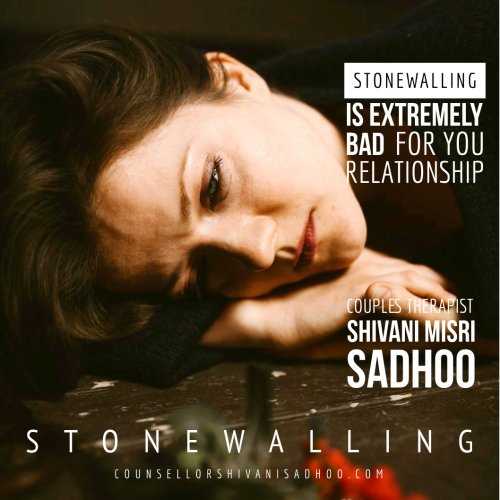Have you ever felt confused by your partner’s emotional reactions—why they struggle to open up, suddenly withdraw, or need constant reassurance? You may also notice that some people cling tightly to relationships, while others fiercely guard their independence or fear getting too close. These patterns often create misunderstandings, emotional distance, and repeated conflict in relationships.
What many people don’t realise is that these behaviours rarely begin in adulthood. Their roots lie much earlier, in childhood. The emotional bond formed with primary caregivers shapes how we experience closeness, trust, and intimacy later in life. Psychologists call this bond an attachment style, and it plays a powerful, often hidden role in relationship breakdowns.
According to Shivani Misri Sadhoo, who is one of the highly experienced relationship counsellors and marital therapists in Delhi and India, attachment styles influence how we express love, respond to emotional needs, and handle conflict. While these patterns develop early, they are not fixed or irreversible, and they are shaped by more than just parental affection.
What Is Attachment Style in a Relationship?
Attachment theory was first proposed by British psychologist John Bowlby and later expanded by Mary Ainsworth. It explains how children are biologically wired to seek safety and closeness with caregivers. When caregivers respond consistently and sensitively, children develop a sense of security and self-worth. When care is inconsistent, emotionally unavailable, or intrusive, children adapt in ways that help them survive—but those adaptations can create challenges in adult relationships.
It’s important to note that attachment strength does not depend on wealth, culture, or education. It is built through everyday emotional exchanges—responses to crying, smiling, fear, or comfort. Personality traits and later life experiences also influence attachment, so relationship struggles cannot be blamed on parents alone.
There are four primary attachment styles.
1. Secure Attachment
People with a secure attachment style feel comfortable with intimacy and independence. They are generally warm, caring, and open in their relationships, able to express emotions without excessive fear of abandonment. Because they trust both themselves and others, they don’t constantly seek reassurance or validation.
Securely attached individuals can recognise and regulate their emotions, communicate clearly, and manage conflict constructively. Their emotional stability often creates a sense of safety for their partners, allowing relationships to feel supportive, balanced, and resilient.
2. Anxious-Preoccupied Attachment
Those with an anxious-preoccupied attachment style crave closeness but live with a constant fear of rejection or abandonment. They invest deeply in relationships and often depend heavily on their partner for reassurance. Even small signs of distance—such as delayed replies or emotional withdrawal—can trigger intense anxiety about their worth or desirability.
To regain emotional security, they may act in ways that pull their partner closer, such as becoming overly accommodating, seeking constant validation, or provoking emotional reactions. These behaviours are driven not by manipulation, but by fear. Despite these challenges, anxious individuals are often emotionally aware, capable of deep empathy, and highly attuned to their partner’s feelings when they feel safe.
3. Dismissive-Avoidant Attachment
People with a dismissive-avoidant attachment style value independence and self-reliance above all else. They often view emotional closeness as uncomfortable or intrusive and prefer to keep their feelings private. In relationships, they may withdraw when intimacy increases, avoid vulnerability, or downplay emotional needs—both their own and their partner’s.
This pattern often develops in response to caregivers who were emotionally unavailable or rejecting, teaching the child to suppress needs and rely solely on themselves. While dismissive-avoidant individuals may appear confident and content alone, the desire for connection still exists beneath the surface. It is often restrained by a learned belief that closeness leads to disappointment or loss of freedom.
4. Fearful-Avoidant Attachment
Fearful-avoidant, also known as disorganised attachment, is marked by deep internal conflict. Individuals both desire closeness and fear it intensely. Love feels unsafe, unpredictable, or overwhelming. This style is often linked to early experiences of neglect, trauma, or chaotic caregiving, where the same caregiver was a source of both comfort and fear.
As adults, these individuals may swing between emotional closeness and sudden withdrawal, struggle to regulate emotions, and experience high levels of mistrust or self-sabotage. Intimacy can trigger anxiety rather than comfort, leading to volatile patterns, withdrawal, anger, or avoidance. Beneath these behaviours lies a strong longing for safety and connection, paired with a belief that love is dangerous or undeserved.
Attachment styles quietly shape how we love, communicate, and respond to emotional closeness. While formed early, they continue to evolve through life experiences and relationships. Understanding these patterns helps reduce blame, increase empathy, and bring clarity to recurring relationship struggles. With awareness and support, individuals and couples can move toward healthier emotional bonds, greater security, and more fulfilling relationships.















